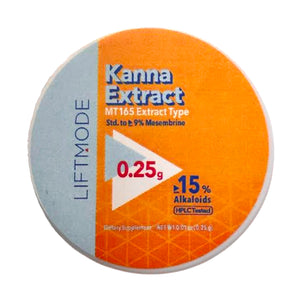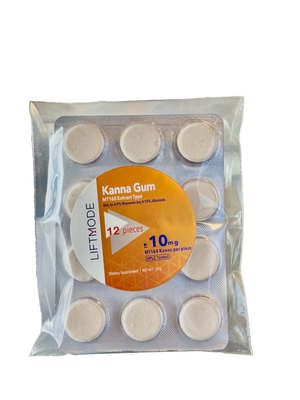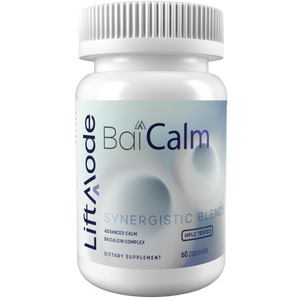So,
what is Berberine? You may have heard talk about this great new health-promoting supplement.
Berberine is a great compound with the potential to help
promote healthy blood sugar levels. It may also help your body
reduce inflammation and cholesterol levels. 'What is Berberine?' is one of the most searched for supplements questions today.
In this article, we’ll explore the basic facts about this great supplement and how you can use it to help
promote a healthy body and mind. We explore the recommended usage, the best benefits, and any side effects. We also look into Berberine warnings and interactions. This is a great article to start learning about the
extract of Berberis vulgaris plants!
[caption id=""attachment_1584"" align=""aligncenter"" width=""640""]
![]()
Berberine helps to promote a healthy body - healthy weight, healthy immune system and good blood sugar levels[/caption]
1. What is Berberine? A Bit of History
Berberine has a long history of use, especially in traditional Chinese Medicine and Ayurveda. People have been using the extracted compound from a number of
herbal sources for nearly a thousand years.
Traditional herbal sources of Berberine include the Goldenseal, Oregon Grape, and Chinese Goldthread. One of the original traditional uses for Berberine was as an anti-parasitic and antibiotic substance.
[1]
2. Berberine Benefits and Effects
The best Berberine benefits are actually quite remarkable. If you are interested in a more thorough look at Berberine's benefits, take a read through our list of the
Top 8 Berberine Benefits!
We mentioned earlier that some of the previous traditional uses for Berberine included as an antimicrobial. In the past, it was also used as an anti-diarrhea tonic and stomach aide, as well as an ointment for sores.
[2]
Scientists have suggested a number of potential benefits of Berberine for future clinical applications. The three main potential benefits include:
-
The potential to support healthy blood sugar levels, in cases when blood sugar is raised (by interfering with an enzyme called AMPK)[3]
- The potential ability to reduce inflammation and the inflammation marker, HbA1c[4]
- Has the potential to help your body reduce unhealthy cholesterol levels (LDLs)[5]
[caption id=""attachment_1543"" align=""alignright"" width=""300""]
![]()
Liftmode's Berberine HCl 200 grams, 98+% purity[/caption]
These beneficial effects have been
replicated in a growing number of studies. In fact, scientists are growing more and more interested in Berberine due to the replicable effects in numerous studies.
In fact, of the over 4100 studies relating to Berberine on PubMed,
more than a third have been published within the last 5 years. This shows how much effort is currently going into studying this amazing compound!
Although Berberine was once used in traditional medicine as a remedy for a number of ailments, it is still a long way from being considered as an acceptable therapeutic substance. At this point, Berberine can be purchased as a
wonderful health supplement with the potential to help improve your health and vitality on a number of factors.
[6]
3. Recommended Usage / How To Take
The recommended dosage for Berberine is around 500 mg, two to three times daily.
[7] Berberine HCl is soluble in water, so you can take it with a glass or juice or in water. We recommend using juice to mask the taste. You could also take Berberine HCl in a smoothie. For more information about how to take Berberine, read through
our Berberine dosage article!
You can take Berberine at any time of the day – it doesn’t seem to have any effects on sleep. One of the best ways to improve the efficiency of Berberine is to take it with a P-glycoprotein (P-Gp) inhibitor, to allow it to be better absorbed and for the effects to last longer.
[8] This includes
Milk Thistle and
Stephania tetranda.
[9]
4. Side Effects
Berberine is a very potent health supplement with a number of amazing health benefits. It appears to be relatively free from side effects, especially at the recommended dosage.
[caption id=""attachment_1585"" align=""alignright"" width=""300""]
![]()
High doses of Berberine may cause unwanted side effects like stomach cramps[/caption]
Exceeding the recommended dosage may result in some unwanted negative effects – especially stomach cramps and gastrointestinal discomfort. Berberine may be unsafe for pregnant or breast-feeding women.
[10]
One important thing to remember is that Berberine has the potential to interact with a number of medications. Medicine that lowers blood sugar or blood pressure could cause serious and dangerous interactions with Berberine.
[11] It may also interact with other medication. Please consult your doctor if you are on any medication and would like to use Berberine HCl.
Conclusion: Berberine is a great health supplement!
[caption id=""attachment_1547"" align=""aligncenter"" width=""640""]
![]()
Berberine was once extracted from herbal sources, including Indian Barberry[/caption]
For people who're asking '
what is Berberine?' -
Berberine is a wonderful health supplement with a range of potential health benefits. It was once used in Chinese Traditional Medicine, as well as in Ayurveda medicine. It is currently being studied for a number of therapeutic benefits. You can purchase Berberine HCl as a health supplement to aid with a healthy diet and lifestyle.
Medical Disclaimer
Not intended to treat, diagnose, or cure any disease or ailment. Please read and fully understand potential adverse effects before using this product. These statements have not been reviewed by the FDA and are not written by a medical professional. Please consult your doctor before using any supplements, especially if you have any medical conditions. Tristan
B.Sc. in Molecular Biology and Biochemistry Researched & written by
Tristan and verified by the Liftmode.com Research Team
References:
[1] Clinical Applications for Berberine, J Schor, Nat Med Journal, Dec 2012, Vol 4, Iss 12
[2] Berberine: a plant alkaloid with therapeutic potential for central nervous system disorders, SK Kulkarni, A Dhir, Phytother. Res., 24: 317–324, 2010
[3] Treatment of type 2 diabetes and dyslipidemia with the natural plant alkaloid berberine, Y Zhang et al., J Clin Endocrinol Metab. 2008 Jul;93(7):2559-65
[4] Berberine in the treatment of type 2 diabetes mellitus: a systemic review and meta-analysis, H Dong et al., Evid Based Complement Alternat Med. 2012;2012:591654.
[5] Efficacy of Berberine in Patients with Non-Alcoholic Fatty Liver Disease, HM Yam et al., PLoS One. 2015 Aug 7;10(8):e0134172
[6] A systematic review of the anticancer properties of berberine, a natural product from Chinese herbs, Y Sun et al., Anticancer Drugs. 2009 Oct;20(9):757-69.
[7] Berberine, Examine.com, retrieved on 23 November 2016
[8] The involvement of P-glycoprotein in berberine absorption, GY Pan et al., Pharmacol Toxicol. 2002 Oct;91(4):193-7.
[9] Herbal modulation of P-glycoprotein, S Zhou et al., Drug Metab Rev. 2004 Feb;36(1):57-104.
[10] Berberine, WebMD.com, retrieved on 23 November 2016
[11] Interaction of Herbal Compounds with Biological Targets: A Case Study with Berberine, XW Chen et al., ScientificWorldJournal. 2012; 2012: 708292, Published online 2012 Nov 13




